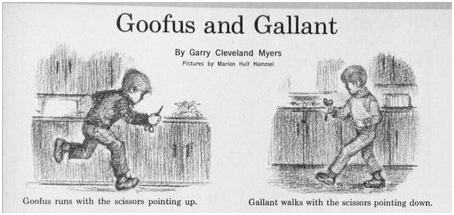
Learning to Embrace the Messy and Cherish the Happy I have entered what I like to call my season of surrender. For those of you who know me, stop laughing…. Now. To say I have a hard time relinquishing control would be a bit of an understatement. I hated group projects in school. (Hate them as a grown up, too.) I despise roller coasters, the dark and “maybes.” I hate ride along car washes because you can’t see where you are going. The term “surprise party” is an oxymoron to me. I try to hit the brakes even when I am a passenger in a car. I love routines, lists and organization. I hate messy… rooms, relationships, children – anything. You get the idea. Relinquishing control is not one of my strong points. As a child, I loved the “Choose Your Own Adventure” books where you picked what choices the main characters made and there were different endings based on those choices. Though I did not understand it at 12, I guess I loved them because it made sense to me. If you make the right choices, you get the happy ending. If you make the wrong choices… well, you know the rest. Ditto for the “Goofus” and “Gallant” cartoons from Highlights. Remember those? “Goofus hogs his seat – Gallant makes space for someone else to sit down.” (I still don’t know if anyone actually subscribed to those magazines. We just read ours in doctors’ offices.)
And we are bombarded with this message– that being “good” and working hard lead to good things and vice versa– as we grow up. If you study hard, then you get good grades. If you get good grades, then you get into a good college. If you get into a good college, then you get a good job. And for most of us, these “if/then” equations prove true. And we are lulled into believing that we are able to control what happens to us. But the problem comes when things start to fall apart. When your happy ending decides you aren’t his, when you or someone you love gets sick, when you lose that great job, when a friendship is destroyed, when marriage, having kids, being an adult, _________________ (you fill in the blank) turns out to be so different than what you expected. Then what? When faced with these “then what?” situations, I think many of us are determined to find a way to attribute whatever the particular disappointment is to ourselves. Because if it is our fault, then we can fix it. And while failure is terrible, the other option– realizing that it is not our fault– is even worse because it carries with it the obligation of accepting that we are not in control of everything that happens to us or those we love. And that idea is contrary to everything we are taught growing up. During the past year, I have found myself trying again and again to “fix” all kinds of situations- both personally and professionally- and failing miserably on all fronts. Over time, it began to feel like I was trying to repair a dam with holes in it. And every time I got one hole plugged up, another leak sprung. But I could not stop because the mantra that played so loudly in my head– “I can fix this. I just need to try harder. I just need to be a little better.”– would not let me. It was exhausting. And it was futile. Anna Quindlen gave an amazing speech to the graduating class at Mount Holyoke College in 1999. In the speech, she encouraged the students to “give up the backpack, give up the nonsensical and punishing quest for perfection that dogs too many of us through too much of our lives. “ I have thought a lot about that backpack through the years. And I believe a part of its load- at least a part of my load- is filled with these false notions that I can control what happens to me and to those I love. I have tried to carry that backpack for my entire life. And though I have enjoyed brief moments where I put it down, I have always picked it back up because the alternative- feeling out of control- was just too scary. But I cannot carry it any longer. It is too heavy. And more importantly, it does not belong to me. I cannot make someone well. I cannot make someone love me. I cannot make someone stay or leave. I cannot fix someone. I cannot love someone so much that their lack of love for me or for themselves disappears. I cannot make someone brave. I cannot sacrifice myself to save another. Not by being smart or kind or good or forgiving. Not by being thin or pretty or interesting or thoughtful. Not by bargaining with God or shrinking myself to give them room to expand. Not even by being “perfect.” And it is these unhealthy, false notions that I am choosing to surrender. These things have always been God’s to carry - never mine. I know there will be times I am tempted to pick the backpack up again because its weight has become so familiar to me. And because the false logic of “if/then” life is comforting to me. But when I find myself carrying it again, I will force myself to put it down, opting instead for an imperfect but authentic life where I will try to accept the dark, embrace the “messy,” and cherish the happy.If you are interested in contributing your own story to the Sidebar, click here. The Sidebar is supported by the stories of our readers, and we appreciate your contributions. |

